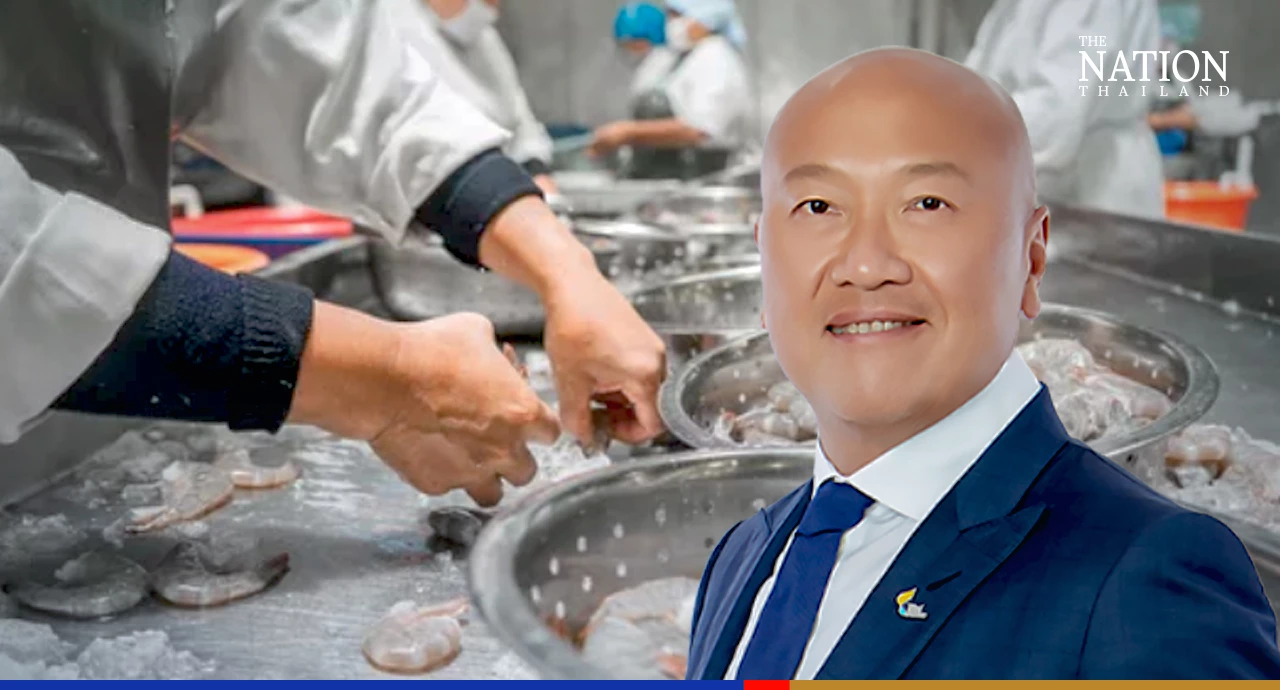
The bio-circular-green (BCG) economy model for sustainable development was now a worldwide trend, said Thiraphong Chansiri, president and CEO of seafood processor and exporter Thai Union Group.
He said that to boost sustainability, the Thai government and private sector had made huge efforts to tackle human trafficking and illegal, unreported and unregulated (IUU) fishing.
As a result, Thailand’s ranking in the US report on human trafficking had improved from the tier 2 watchlist to tier 3, while the European Union had removed its yellow card over IUU fishing.
"Thailand is now accepted as a leader in sustainability among countries worldwide," he said.
Thailand is also the region’s leader in terms of companies listed on the Dow Jones Sustainability Index (DJSI). As of December, 26 Thai companies featured on the DJSI.
Thiraphong said Thai Union has been working on sustainable development since 2015, covering employees' welfare, procurement and production.
He explained that Thai Union is paying attention to employees' welfare by improving their quality of life and helping migrant labourers get visas and passports.
The company also ensures its sources are in compliance with the law. "For instance, fishing boats must be licensed, use fishing tools in line with laws and catch fish only in designated areas.”
He went on to further explain that the company has improved production methods to mitigate impacts on the environment and ensure safety among workers and locals living near its factories.
Thai Union has committed to procuring tuna from sources certified by the Marine Stewardship Council and ensuring that any plastic in company products must be reusable, recyclable or compostable, he said.
He added that Thai Union is focused on reducing food waste in production as well.
"Many companies may feel that BCG or sustainable development is out of their reach, but I want to tell them they must learn and prepare to deal with this issue," he said.
He said business operators must also to pay attention to climate change as companies worldwide have committed to the goal of net-zero carbon emissions by 2050.
Thailand has committed to achieving carbon neutrality and net-zero emissions by 2050 and 2065, respectively.
"Hence, sustainable development is a national matter, and nobody can escape or deny this issue," he said.
Even though many businesses believe sustainable development brings higher production costs and complexity in business operations, it also offers opportunities, Thiraphong said.
"For instance, energy saving can cut production costs, while reducing food waste can increase the business’s value.”
He explained that food waste from tuna and shrimp processing can be recycled to produce fish meal.
He added that Thai Union had applied technologies to boost the value of food waste further, such as oil from tuna heads, calcium from fish bones, collagen from fish skins, and chitosan from shrimp shells.
"These products have margins higher than canned fish," he said, adding that food-waste processing also helps boost the company's competitiveness.
He also warned businesses that sustainable development may eliminate those who are not focused or prepared for this issue at any time.
"We could lose our business overnight, so I would like to ask entrepreneurs to consider [sustainable development]," he added.
“Isaan BCG Expo 2022 was a collaboration between the Khon Kaen Innovation Centre, Mitr Phol Group, and 50 alliance networks from the public and private sectors. The expo is yet another effort to transform Thailand's least economically developed region into a hub for bringing Thai economics to Asean through the BCG model.”
Related stories:
‘Bangkok Bastards’ and the story of Thailand’s sustainable architecture
How Banpu is taking NEXT step for Thailand's BCG sustainable economy


